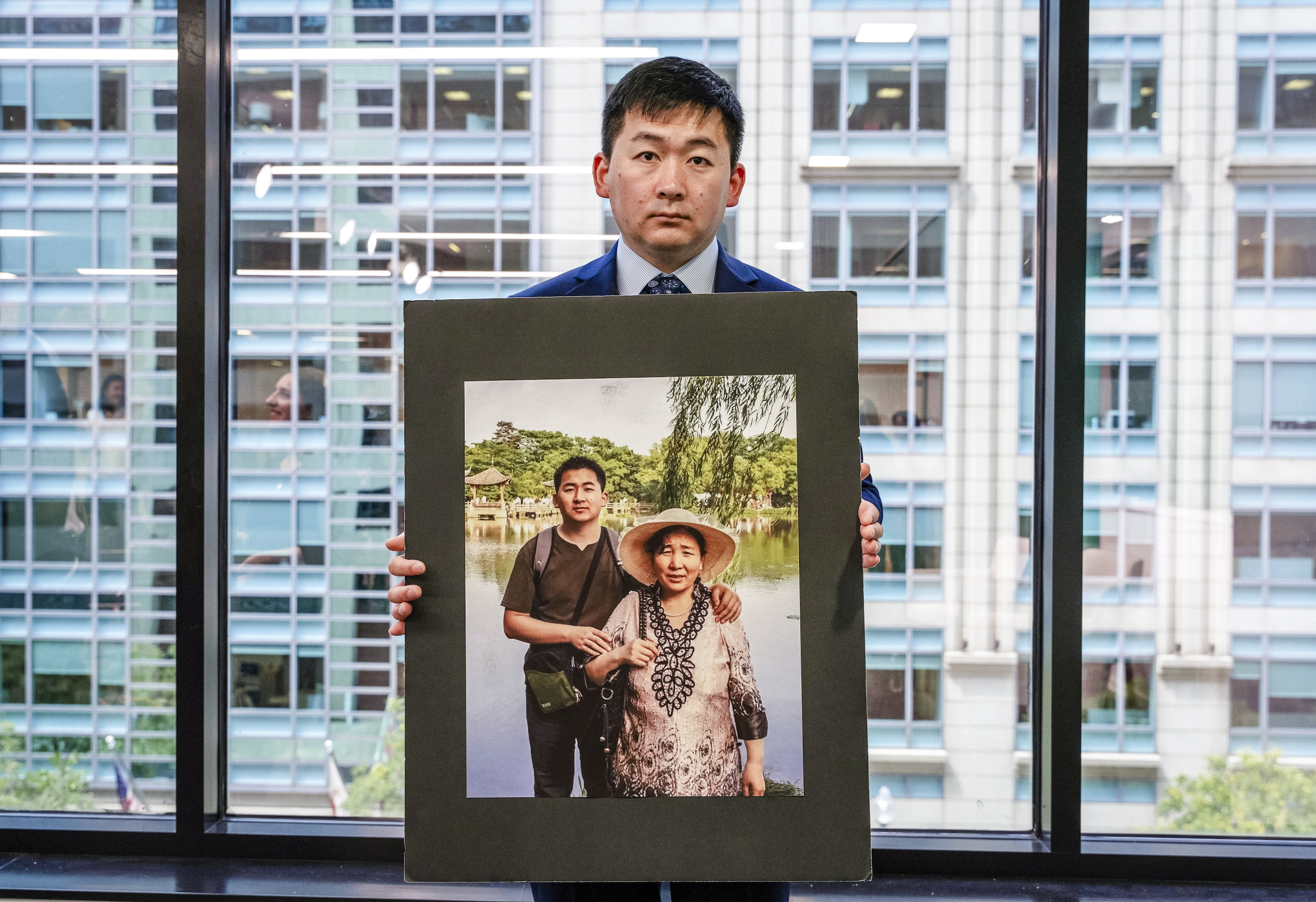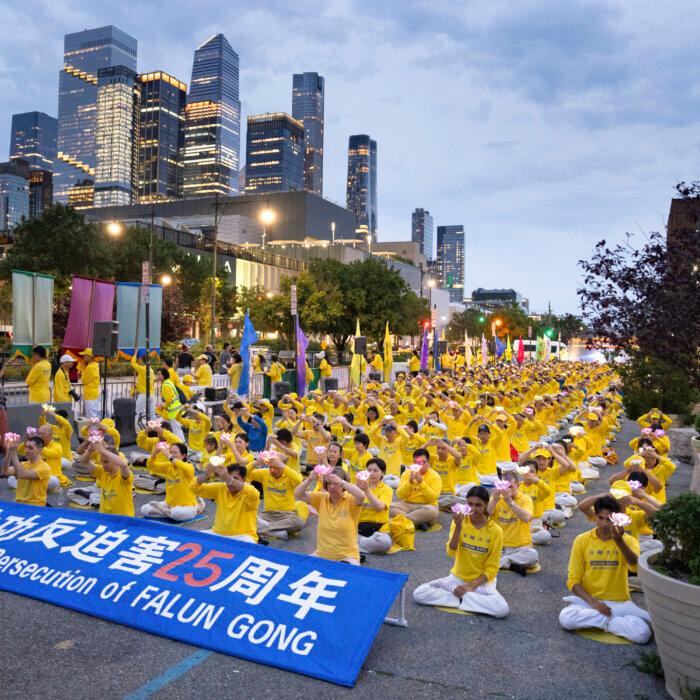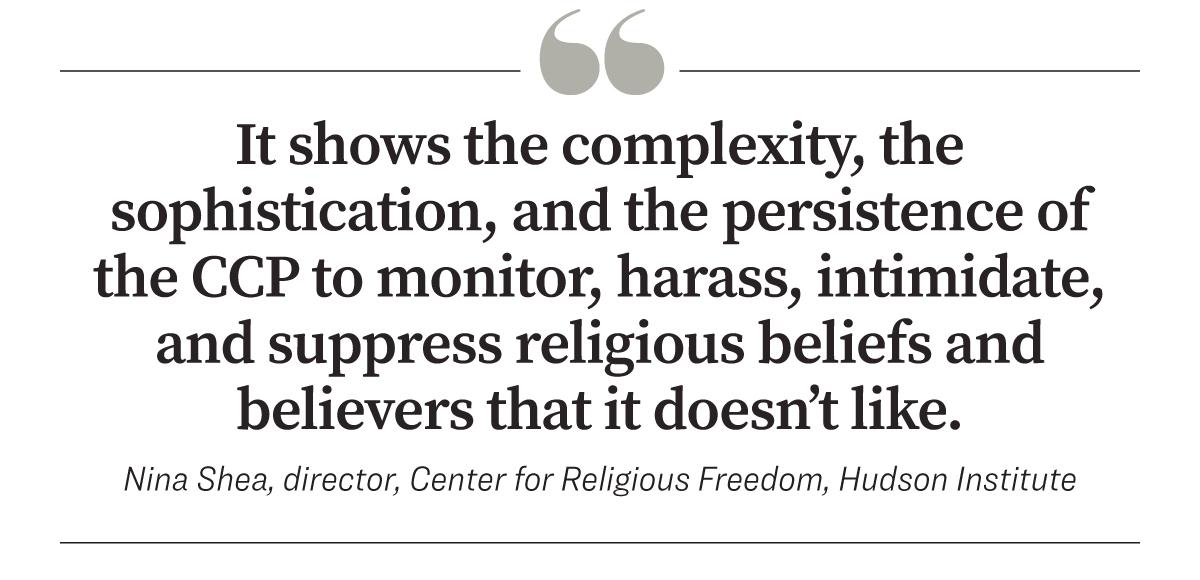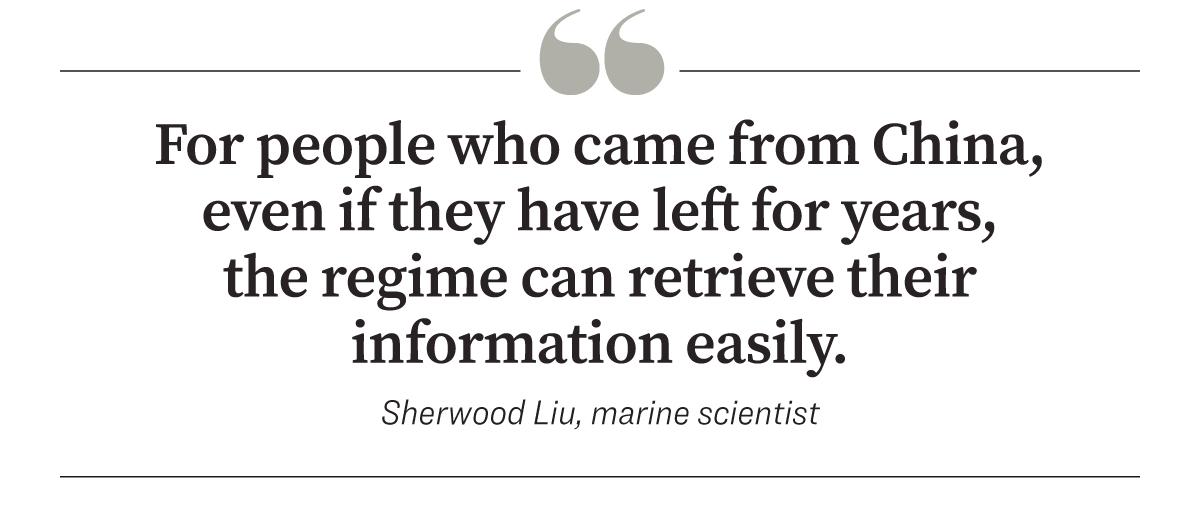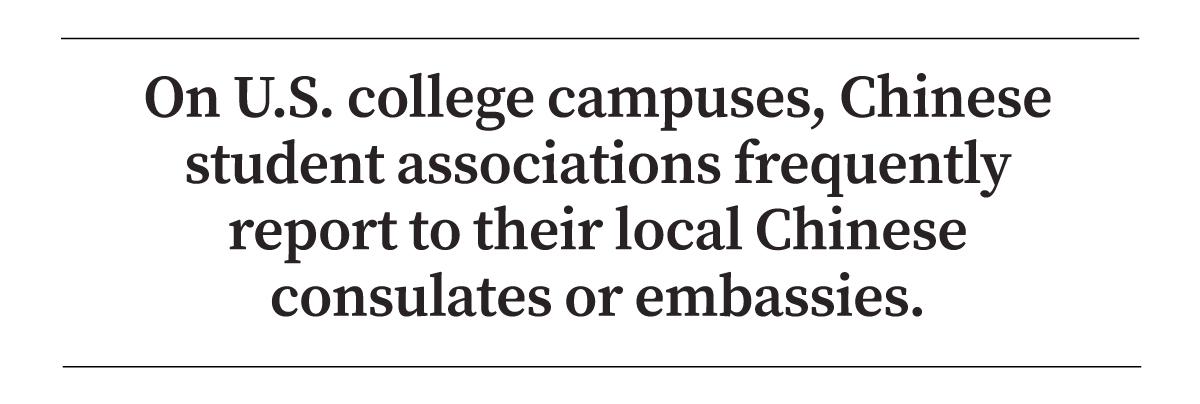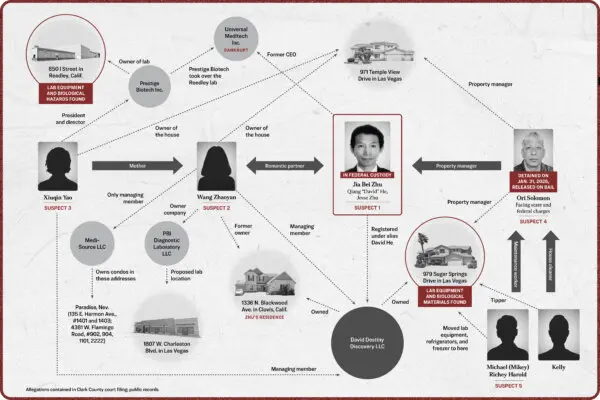Florida marine scientist Sherwood Liu knew something was amiss when friends out of state began messaging him.
“Do you know this guy?”
Liu didn’t know him.
But the alleged spy, who works in an international information technology firm, might know Liu—quite well.
For more than three decades since Liu settled in St. Petersburg, only two practitioners have ever lived in the city. Liu was the only one there during the period the man was allegedly collecting information. As the volunteer organizer of meditation exercises in the local area, he was also publicly visible—an easy target.
Whether it was him or not, the arrest was a nagging reminder of how Chinese Communist Party (CCP) strains to keep tabs on dissidents like him, whether they are in China or an ocean away.
As the news sank in, Liu felt an urge to confront the man.
Top Target
Falun Gong makes up a sizable community in China. In the 1990s, roughly 1 in 13 Chinese were practicing the meditative discipline. Millions of people across the country rose early to exercise in public parks, while aspiring to live by the practice’s three principles: truthfulness, compassion, and tolerance.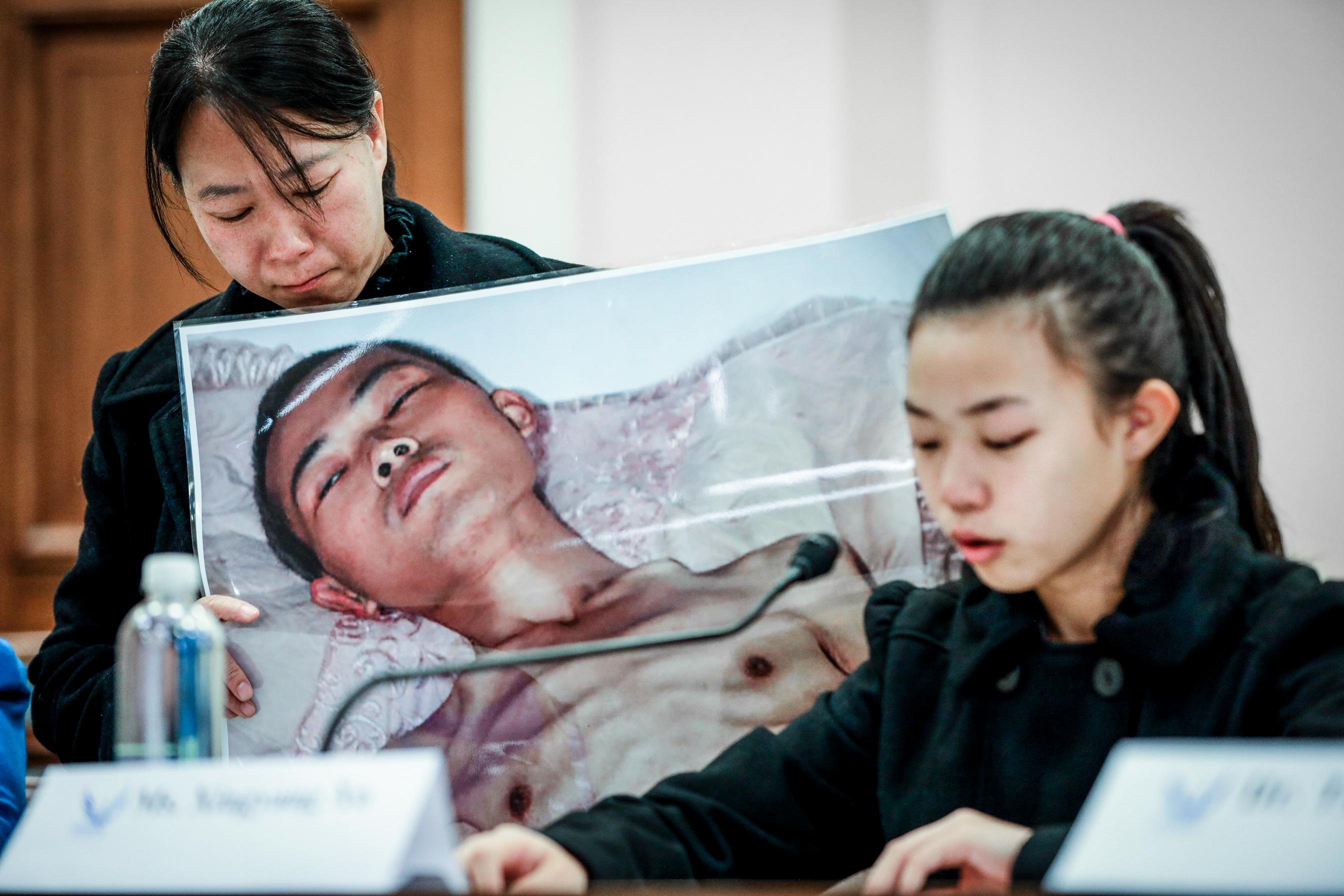
From 2014 to 2021, Freedom House conservatively logged 214 cases of direct physical attacks originating from China, with Falun Gong on the list of top targets.
“They want to eradicate Falun Gong from the face of the earth and not just from China,” she said.
There are stakes for America, too.
Operating ‘In the Dark’
Flying out of China in 1992, Liu was in his late 20s, still shaken by the bloody Tiananmen massacre three years earlier that killed an unknown number of democracy-minded students who called for political reform.His former schoolmate, a protest leader, was in jail serving an 18-year sentence.
Liu recalled drawing a deep breath as the plane took off from Beijing, telling himself, “I’m free now.”
He thought that he was out of the regime’s reach once and for all. But just a few years later, when a new political war descended across China targeting Falun Gong, he realized he was wrong.
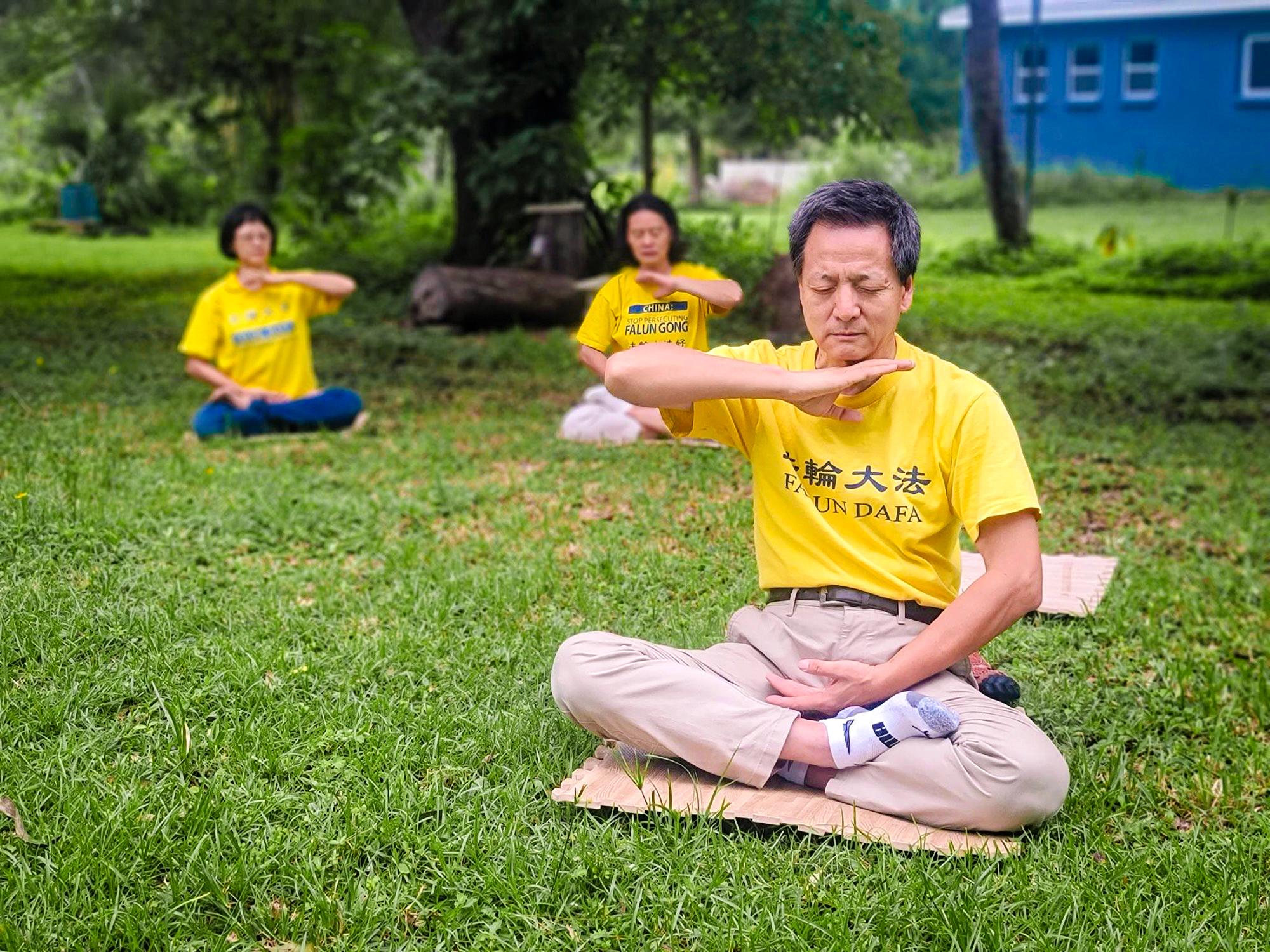
Liu, now a U.S. citizen, had taken up the faith by then. Every morning starting in 1998, he and his friends met at a St. Petersburg park to stretch and meditate to the soothing music. But as soon as the CCP launched its persecution in China in 1999, it also changed the environment around him here, on the other side of the globe.
Emails, written in Chinese and laden with abusive language, flurried into his inbox. A Chinese co-worker, who also practices Falun Gong, said CCP police harassed her family back in China, making it clear their American relative was being watched, even down to her purchases.
Around 2007, the same thing happened to Liu. It was the lunar Chinese New Year, a time for family reunions. A security official showed up at his family’s home in Beijing, demanding Liu’s phone number.
Liu’s parents refused to give it. So the official demanded they arrange a call with Liu. “We have met in the United States,” the official told Liu on the call, then said he’d been in the park where Liu does Falun Gong exercises and photographed him. “I know pretty well what you do.”
The official flattered Liu and tried to get him to return to China. He called Liu “a talent the country vitally needs” and promised to cover all his travel expenses if he agreed to go home. When Liu declined, the official made an about face.
”Watch out what you do,” the man warned, telling the researcher that if he continued talking about the regime’s persecution, his brother’s career and his children’s education could suffer.
The official seems to have made good on the threats.
Liu’s brother’s career stagnated after that. Until his retirement a few years ago, he was never promoted, staying in the same position at a state-run airline because, Liu assumed, his brother was deemed “not trustworthy enough for the CCP.”
Placing such a hold would have been easy for the official. “They just need to write or make a phone call to my brother’s company, that’s all it takes,” Liu told The Epoch Times.
Despite all that he’s been through over the years, Liu says he still feels uneasy thinking about being monitored so close to home. Wesley Chapel, where the alleged Chinese spy is based, is less than an hour away from his city. He wonders how many more Chinese agents could be nearby, acting as eyes and ears for the regime.
“The spy may live among us, without you knowing anything they can collect information, and you are constantly monitored by the communists,” he said. “That’s a pretty scary thing.”
“We are in the open,” he said. But the Chinese agents operate “in the dark.”
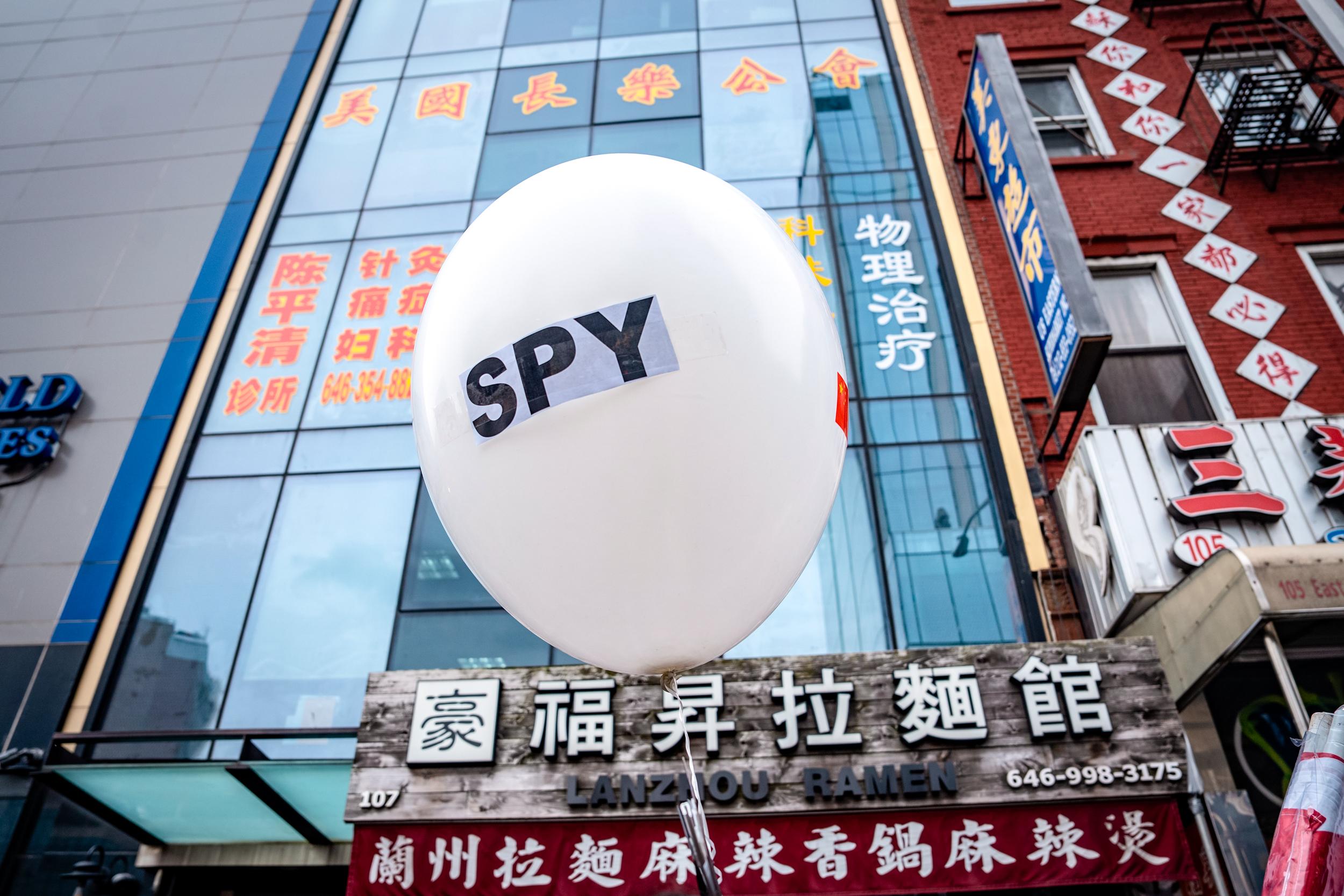
Systematic Data Collection
Among Chinese dissidents, many share the worry of not knowing how much information the regime has on them.Families of U.S. citizens who practice Falun Gong have reported trying to travel, only to have their passports confiscated steps away from leaving China.
“For people who came from China, even if they have left for years, the regime can retrieve their information easily,” said Liu. “That’s how they make threats.”
‘We Know Everything’
For New York architect Simon Zhang, the realization that Chinese police had an eye on him came at the worst possible moment.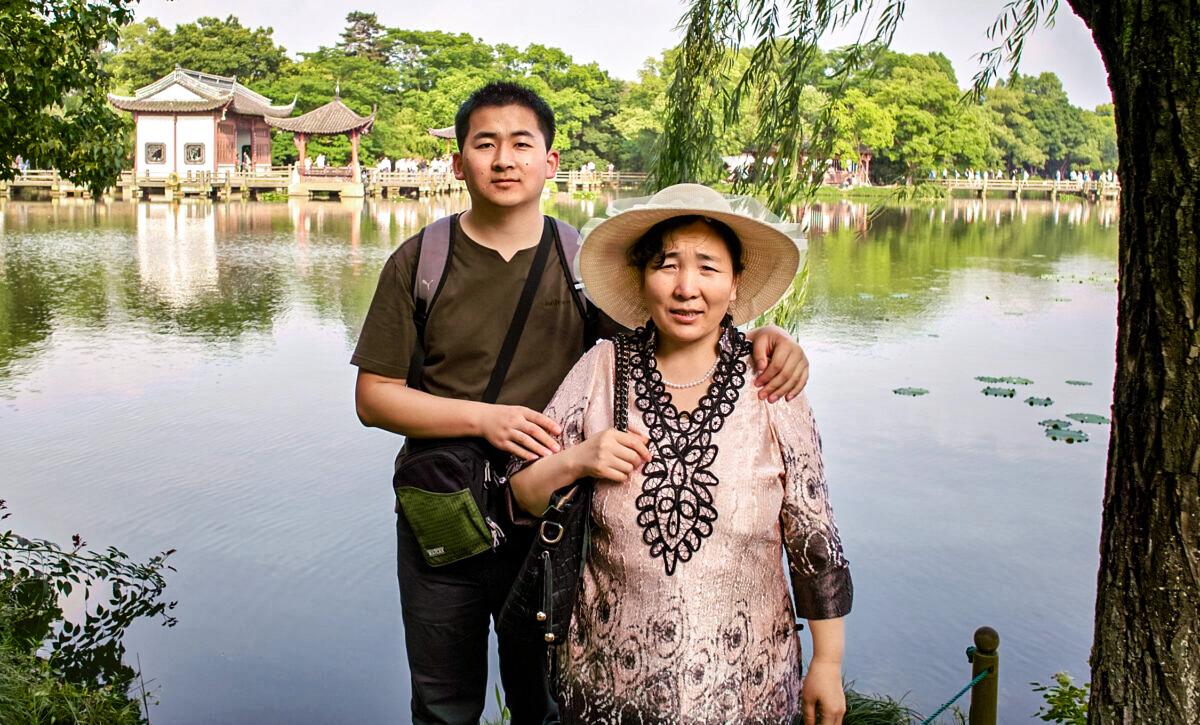
Within weeks, she collapsed from the torture, including forced feeding. She died at the hospital wearing iron ankle chains, blood smeared on her face and shoulder. Nearly 50 police officers guarded Ji’s battered body and forced Zhang’s father to authorize a cremation.
They showed him photos of his son attending Falun Gong events in the United States, to warn him “we know everything,” recounted Zhang.
Not long after that, they began probing the father for details about his daughter-in-law, Zhang’s wife.
Beijing was “mapping” the Falun Gong community like they would a terrorist group, said Sarah Cook, a senior China analyst and author of the 2017 Freedom House report “The Battle for China’s Spirit.”
An ocean apart, grappling with the gravity of his loss, Zhang said he found it repulsive that the Chinese authorities wouldn’t let up, even after killing his mother.
“It’s beyond my ability to describe what I’m feeling,” he told The Epoch Times. He spoke of his mother’s attention to detail, her loving heart that endeared in-laws, and her persistence, despite the torment, to stay true to her beliefs. At age 37, he said he felt as if a 37-year history was suddenly cut from him.
Zhang described a certain helplessness that sometimes sinks in. Simple as it is for Chinese authorities to reach him, the distance between him and his loved ones in China was almost insurmountable.
He says he strains to not cause them extra pressure, putting them in a position to either try to convince the persecutors to change their minds, or run away and hide.
“It feels like you have to censor yourself because you don’t want to bring trouble to people in China,” he said.
Hatred on the Streets
Where threats fail, violence is often introduced.In 2002, as Sean Yang, the current head of the Southern USA Falun Dafa Association, was meditating in front of the Chinese consulate in Houston to protest the persecution in China, when a car came round from the other side of the consulate. Someone hurled raw eggs at him from the window, then sped away. He was left with a white shirt covered in egg blots.
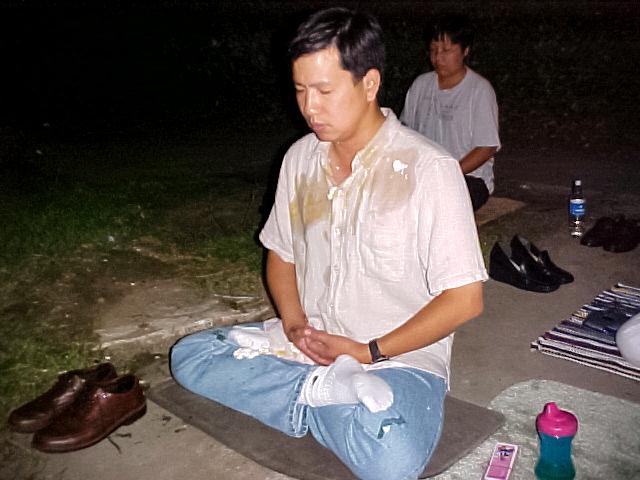
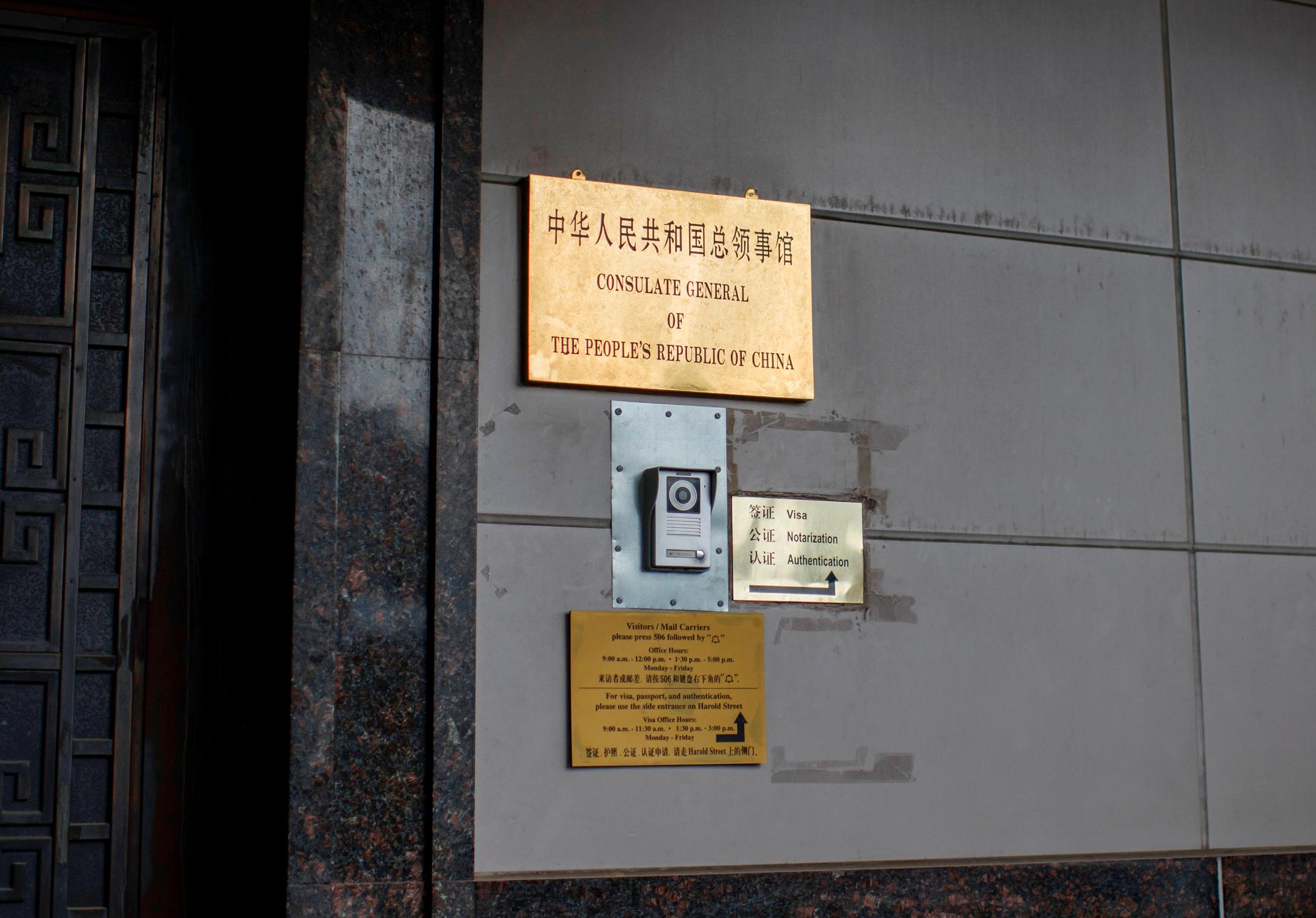
“It was clearly out of hatred,” Taiwanese-born Yang told The Epoch Times. “It was just too brazen they dared to do this here in America.”
On those same sidewalks, Cynthia Sun as a child had watched consulate employees stride out from the facility, come right up to the meditators, and take pictures of their faces from a foot away.
During the height of the campaign, the World Organization to Investigate the Persecution of Falun Gong investigated and caught Peng Keyu, the New York Chinese Consul General, admitting on tape his role in instigating the attacks.
Cook, while researching for Freedom House, lived just a few subway stops from Flushing so decided to check things out for herself one weekend afternoon. In no time, she spotted someone screaming anti-Falun Gong propaganda and disseminating hate literature. Crossing the street, she saw another group of between five to eight people surrounding and heckling a Falun Gong practitioner.
Cook was so stunned she almost wondered if she was in China.
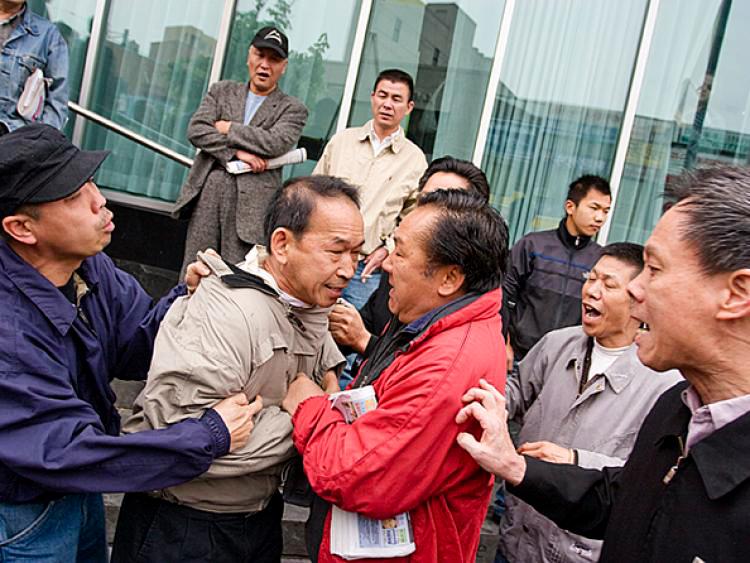
“I was there on a routine day,” she told The Epoch Times. “This was the general atmosphere at the time in Flushing.”
She felt for the victims. Some might have just escaped from persecution in China, coming to America for freedom. “They’re walking down the street and just wearing a t-shirt” with a message about Falun Gong, and here they are “facing these hateful attacks.”
Manipulating the US
Assaults, however disturbing, are the tip of the iceberg in Beijing’s global offensive. More worrying to researchers is how the Party manipulates Americans to carry its water.
A Chinese state-run think tank gives instructions how to do this, according to a leaked document from July. “Actively share defamatory information about Falun Gong with overseas media, and provide support… content suitable for short, catchy videos should continue to be disseminated via overseas social media to increase coverage. Suppress Falun Gong’s internet traffic by buying ads [and] SEO optimization.”
For a long time, the CCP has used its relationships with the United States to further its goals. Economic activities, diplomatic relations, civil exchanges, and cultural activities, are all potential levers.
One leaked official document from Henan Province in 2017, told lower-level officials to exploit city-to-city partnerships, to mobilize “patriotic and friendly individuals, such as experts, scholars, reporters, and overseas Chinese community leaders” who have “major influence” to speak on the regime’s behalf
In 2016, the Minnesota Senate debated a resolution condemning Beijing’s systematic forced organ harvesting. The Chinese consulate in Chicago sent letters to legislators, and some officials drove out to visit lawmakers in person.
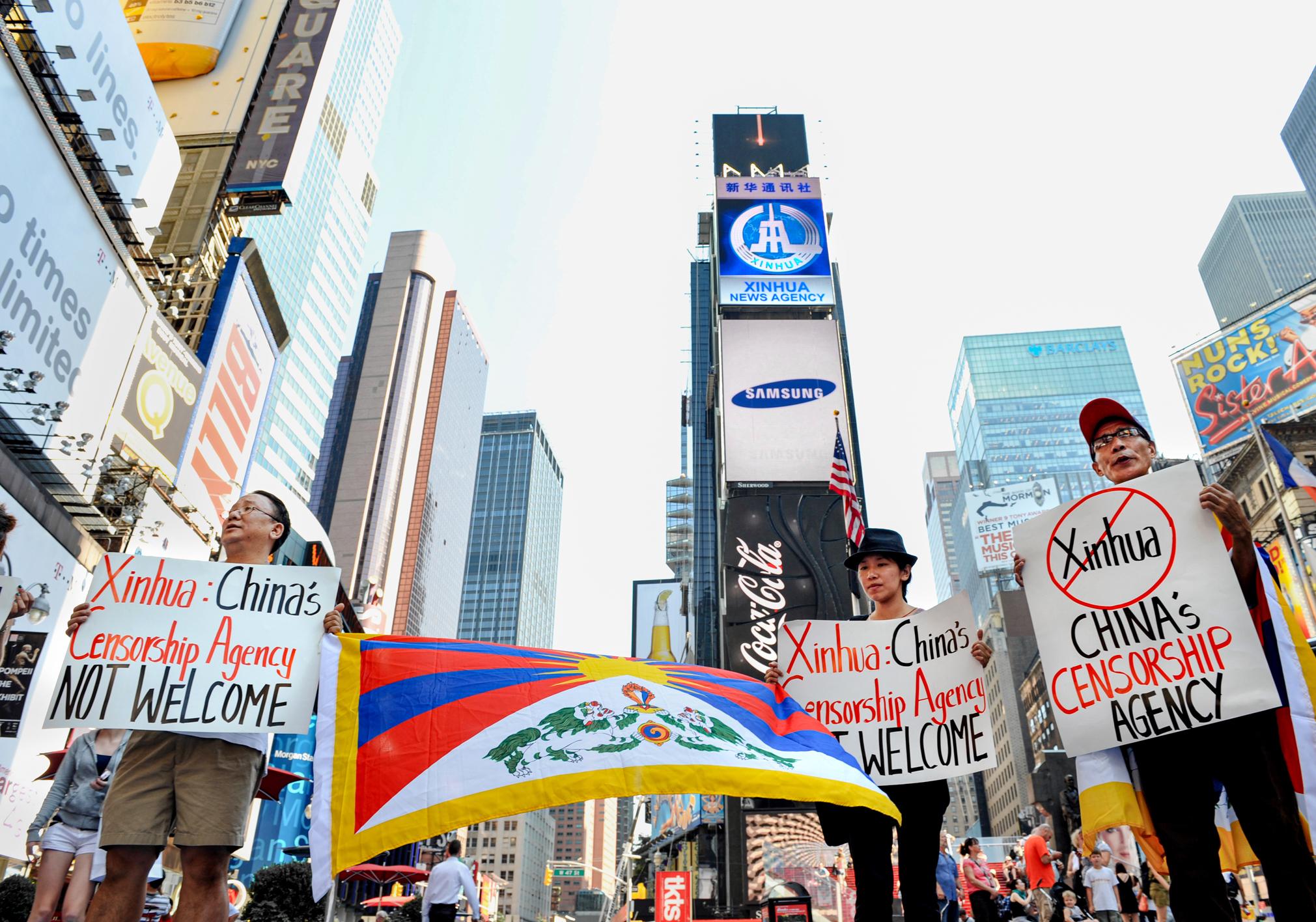
The latest directives go further, issuing instructions to focus on amplifying false narratives with the best chance of having legal ramifications, the report said.
Capturing Academia
The CCP has made massive inroads into the American education system. The State Department granted nearly 300,000 student visas to Chinese in 2023, roughly half of all foreign students.The school head and other leaders reacted positively—until the Chinese students “caused an uproar,” Lily said. She was summoned to meet with a school official who, according to Lily, repeated CCP propaganda and blamed her for “trying to cause trouble.”
Lily felt hurt. She had mentored the very Chinese students who turned against her. All of a sudden, she said, she was no longer seen by them as human, but as a “class enemy.”
It’s akin to “bringing communism to the United States,” said Lily. “In front of communism, whatever you have doesn’t mean anything, it takes away everything from you.”
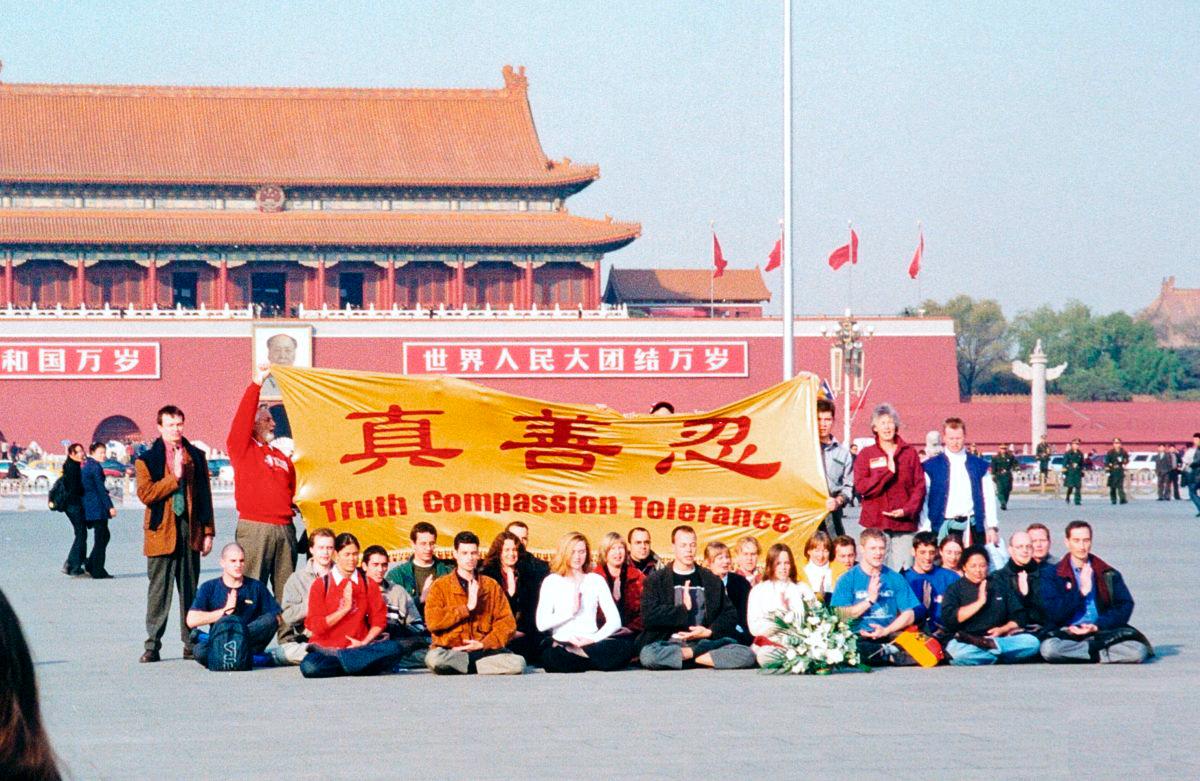
The school head accused Lily of making the Chinese students feel “unsafe.”
“Some of their parents work in the Chinese government, so now they’re worried for their safety and their parents’ safety in China,” Lily recalled hearing. “They want to stay away from you.”
Lily eventually had to draft an apology letter to read from the podium. But on the appointed day, no Chinese students showed up, so Lily went straight home.
Two years later, and no longer at the school, Lily still feels traumatized by the ordeal.
“The Chinese students are [the school’s] customers and they are really aggressive, and the school just bows to them,” she said, adding that by extension, the school was bowing to the CCP.
In appeasing the Chinese students, Lily says, the school is doing them a disservice by shielding them from information counter to CCP narratives. Despite being in America, they are “still not free from the CCP influence,” she said. “They are physically here, but their mind and their heart are tied to the CCP.”
The seeping Chinese influence also manifests in other ways.
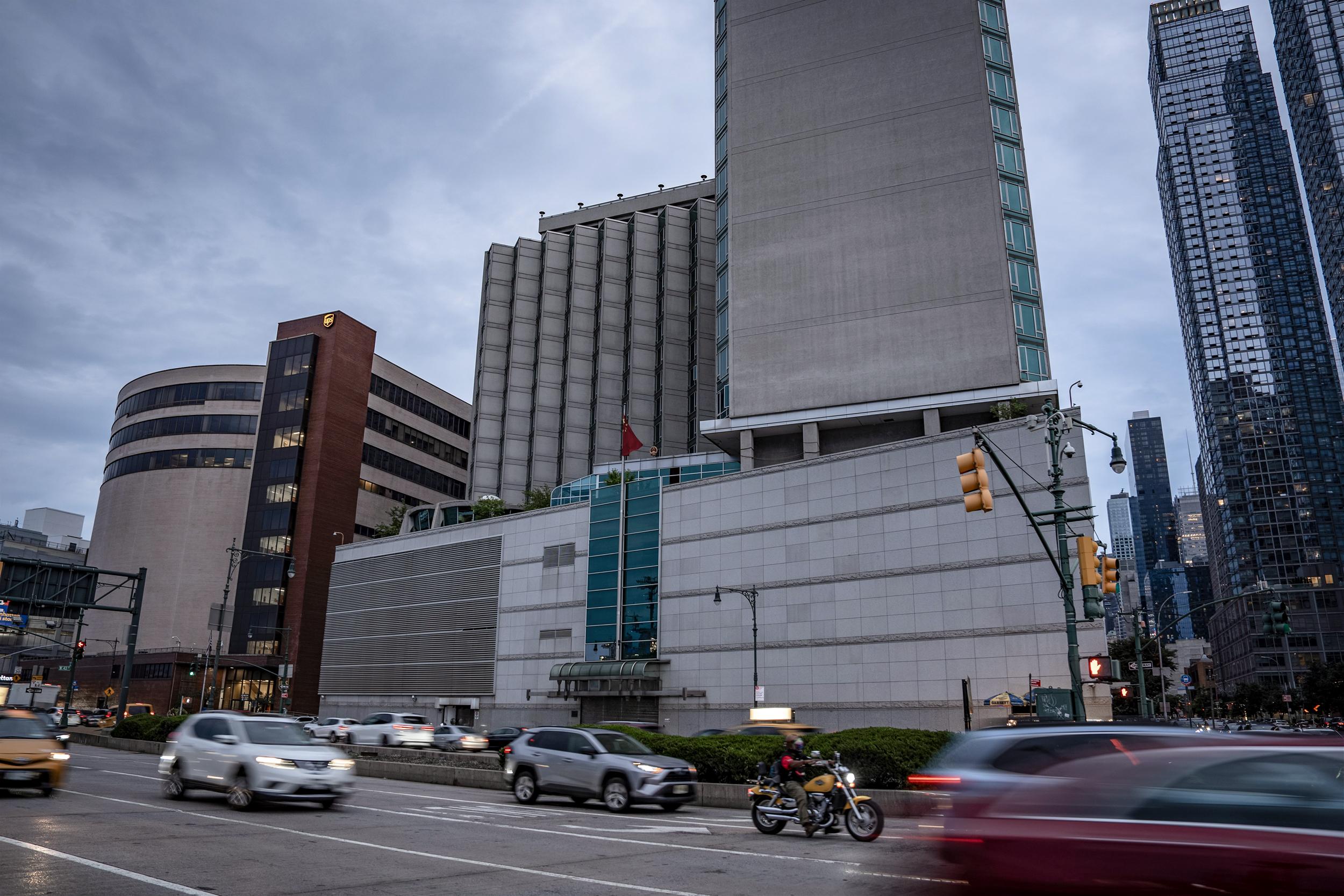
An ‘Adaptive’ Authoritarian Model
A labyrinthine incentive structure exists to keep the persecution machinery going.As the CCP works to export its repression abroad, it is constantly adjusting its tactics and incentive schemes.
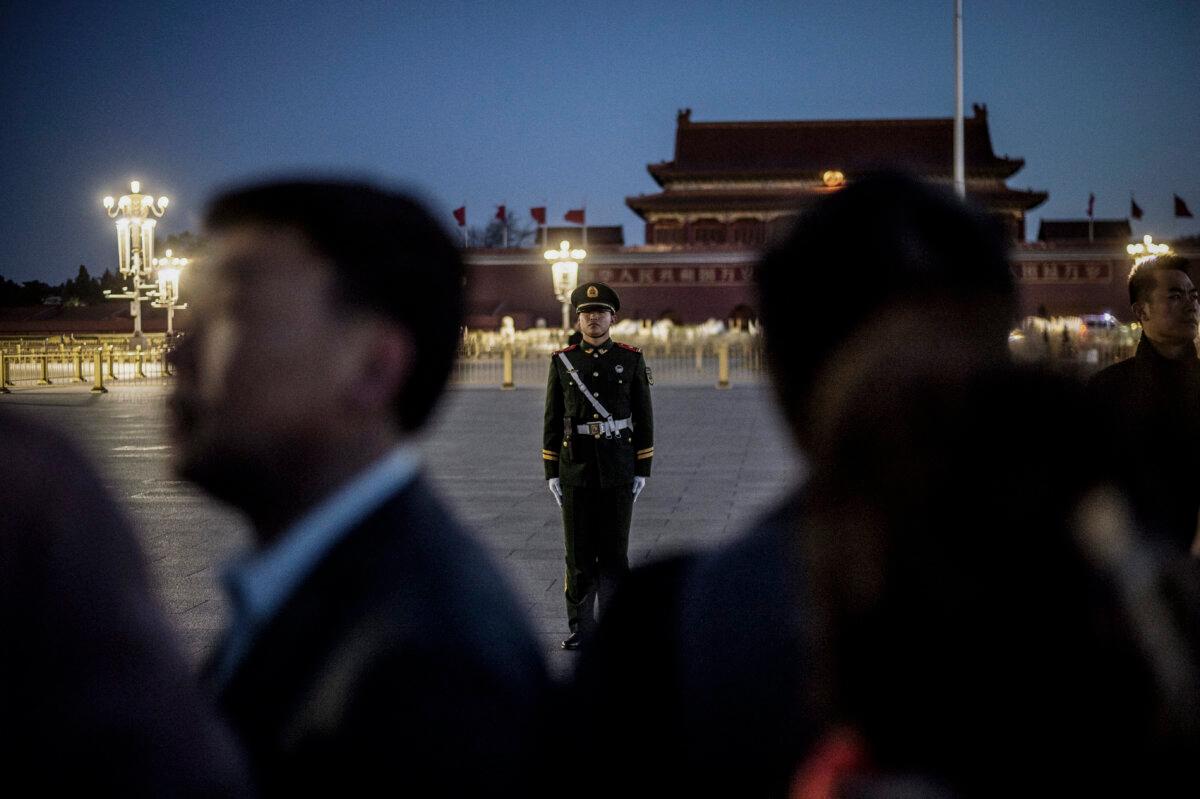
“Being good at repression” brings in tangible rewards, thus incentivizing further improving the tactics, she said.
“The CCP doesn’t pick and choose,” said Cook. “It just looks at these different agents as being resources for collecting information across a wide set of CCP targets and priorities.”
This “insidious” aspect is why she thinks it’s in U.S. interest to take a “holistic defensive approach” to Beijing.
“Because that’s how the CCP looks at it from an offensive perspective.”
Shea, from the Huston Institute, echoes her.
Shadow of Fear
In China, Zhang was 14 when he had to cope with incessant police harassment, house raids, and fear of his mother being taken away.Even now, he grieves recalling his mother’s one major wish that never came true for her: to come see for herself that people can freely practice Falun Gong in America without fear.
Still pained knowing that the police in China hold power over his family, Zhang finds it more important to speak up and “do the right thing.” He says in the long run, this is most important since the sooner the persecution ends, the sooner his family will find relief.
Liu, the Florida marine researcher, has the same thought: “We just have to carry on with all that we need to do for those people who don’t have a voice.”
